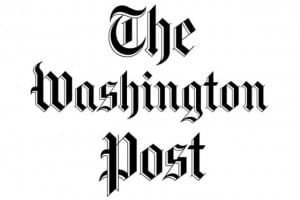Buzzfeed and the Perils of Fighting Plagiarism
Why it doesn't always pay to be transparent...

Friday evening, Buzzfeed Editor-in-Chief Mark Schoofs posted a note to the site’s readers, indicating that they had identified eleven articles that “did not meet our editorial standards” and had appended editor’s notes to them.
The articles were written by senior reporter Ryan Broderick, who, according to later reports, was fired from the company.
Broderick has been no stranger to controversy during his tenure at Buzzfeed. In January, he published a report about the blog Zero Hedge, which accused the site of doxing a Chinese scientist. That report led to Twitter handing the site a five-month ban.
However, the article about Zero Hedge was among the ones that now bear new editor’s notes. With the note saying that the article omitted attribution to the CBC. The ban was repealed earlier, with Twitter saying that it was in error.
The story also isn’t Buzzfeed’s first battle with plagiarism. In 2016 the organization fired then-editor Benny Johnson after the discovery that he had committed plagiarism in over 40 articles.
However, Johnson would go on to have continued success in journalism taking jobs at the National Review Online and the Independent Journal Review, where he was suspended for ethics violations, before finally landing at the Daily Caller and then the non-profit organization Turning Point USA.
However, both Johnson’s and Broderick’s stories highlight the difficulty of trying to battle plagiarism in the news industry. In a world trust and reputation is everything, doing the right thing often mars that trust. While the hope is that a much larger embarrassment down the road, the bitter truth is many news organizations ignore plagiarism or sweep it under the rug without consequence.
To that end, Broderick’s story highlights one of the real dangers media companies face when they take plagiarism seriously: Namely that you can find yourself earning a reputation as a haven for the very thing you’re trying to fight.
The Perils of Fighting Plagiarism

Though Buzzfeed has earned a reputation for serious journalism in recent years, that was not always the case.
Founded in 2006, Buzzfeed rose to internet fame on the back of “listicles,” short top ten articles that were (and still are) wildly popular on social media. However, the site faced repeated allegations that the lists were lifted from other sources, such as Reddit and YouTube.
However, that infamy began to change in the early 2010s as Buzzfeed started to make a push into doing original reporting. A lot of that coincided with the 2011 hiring of Ben Smith as editor-in-chief, who put a heavy emphasis on investigative journalism.
In 2012, Adrien Chen at Gawker wrote an article about Buzzfeed’s copy and paste ways, but noted that attribution had improved dramatically under Smith’s tenure.
Then, four years later, the Benny Johnson story broke. The former editor of the paper was accused of plagiarizing over 40 different articles. A popular name and a higher-up in the company, the firing could not have been easy for Buzzfeed, but it still did the right thing.
However, in the wake of the firing, much of the media coverage was directed at mocking Buzzfeed. Between parodying its click-bait headlines and asking, “What does it take to get fired from Buzzfeed?” the company was roundly mocked for doing the right thing.
When Johnson quickly landed a job at the National Review Online, it should have been seen as an indictment of the NRO, but Buzzfeed captured nearly all of the plagiarism headlines.
Now, with the Broderick story, a similar tale is emerging. Buzzfeed, by all accounts, did the right thing. They were informed about potential plagiarism, investigated it and took decisive action. While there is more that they could have done, it’s much more than many do.
In an era where many publications ignore plagiarism with minimal consequences, Buzzfeed is being penalized for doing the right thing. This, in turn, will discourage others from doing it themselves.
Fighting the Good Fight

Consider the story of Marie-Louise Gumuchian, a former CNN reporter that was fired in 2014 after an investigation determined she had plagiarized some 50 stories.
Her story is notably similar to Broderick’s. In both cases, the publisher became aware of potential plagiarism, investigated the work, found multiple instances, and fired the reporter after updating or removing the problematic articles.
The only notable difference is that Gumuchian was discovered internally by CNN, where Broderick appears to have been first spotted by an unidentified outside source.
Buzzfeed’s response is in line with other major journalistic institutions. Yet Buzzfeed’s reputation for being a haven for plagiarism remains intact. This is primarily driven by its early years, where that reputation was very much earned.
However, one has to wonder if its reputation today would be better if it had merely either ignored the plagiarism or handled it in a non-transparent way.
None of this was to say that Buzzfeed’s handling of this was perfect. Buzzfeed should have been proactive in its search for plagiarism, thus catching these posts BEFORE they go online. Also, releasing the announcement on a Friday evening was an apparent attempt to bury the story. Finally, not announcing what action was taken against the reporter (that was reported on from anonymous sources) was also a misstep.
Buzzfeed can and should do more. But what motivation is there if it doesn’t help their reputation? The efforts they do make are rewarded with mockery even as other institutions snatch up the plagiarists they fire.
It’s unfair that a publication is penalized for doing the right thing, but it’s the cost of (relative) transparency when it comes to dealing with plagiarism.
Bottom Line
There are a lot of reasons why news organizations don’t do a great deal to combat plagiarism. Limited resources, short news cycles and a feeling that this is a rare issue are just a few reasons.
However, none of this changes a simple fact: Journalists are being tasked with doing far more with far less time and resources. Though most journalists are rising to the challenge admirably, a small group will be tempted to take unethical shortcuts.
Journalism is already threatened enough and can not afford to lose its ethical foundation. Plagiarists, by the very nature of the lie in the act itself, chip away at that foundation.
Though Buzzfeed’s early reputation for being a copycat was well-earned, it’s work over the past near-decade has been hampered not just by how it got its start, but by trying to be at least somewhat transparent about plagiarism.
Despite that, I’m happy to see that new editor-in-chief, Mark Schoofs, is continuing the work of his predecessor. Though he’s only been on the job since January, he shows a similar commitment in this area.
Here’s hoping that he can push Buzzfeed not just to meet current industry practices but also to excel past them.
Standard practices are no longer enough. It’s time to get proactive, even if it is painful and challenging to do so.
Want to Reuse or Republish this Content?
If you want to feature this article in your site, classroom or elsewhere, just let us know! We usually grant permission within 24 hours.
